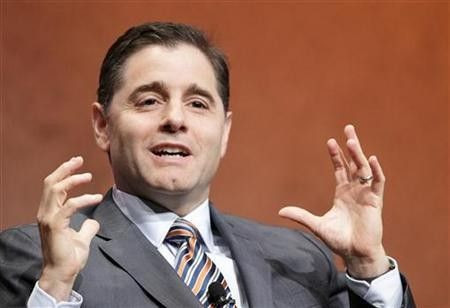U.S. Wireless Initiative Stalls New Billing Rules

The U.S. wireless industry is rolling out more consumer-friendly billing practices, fending off a plan by communications regulators to impose new rules against unexpected charges.
Guidelines to be unveiled on Monday by the wireless trade association, CTIA, will see companies send alerts to customers when they near and reach monthly limits on voice, text and data services, and before they incur international roaming charges.
Similar to rules the Federal Communications Commission was contemplating, the regulator is backing off its plan for now.
Consistent with the FCC's ongoing efforts, these actions harness technology to empower consumers, and ensure consumers get a fair shake, not bill shock, FCC Chairman Julius Genachowski said in a statement.
The FCC has found that one in six mobile phone users have experienced bill shock, or unexpected fees tacked onto their monthly bill, and 23 percent of those users faced unexpected charges of $100 or more.
The FCC proposed rules last October that would make mobile phone companies send text or voice alerts to customers before charging them for services not covered by their plans.
Consumers should begin receiving warnings about their bills faster under the industry initiative than the FCC would have been able to require through the rulemaking process.
CTIA, representing companies serving 97 percent of wireless customers, will announce the voluntary guidelines, including disclosure of tools that make it easier for customers to track and control their service usage.
The trade group expressed concern last October that prescriptive and costly rules could threaten practices in the industry that have already led to fewer wireless complaints and lower average monthly bills.
The FCC intends to leave its bill shock proceeding open. If wireless carriers fail to comply with the industry guidelines, the agency can still move ahead with enforceable rules, an FCC official said.
Our phones shouldn't cost us more than the monthly rent or mortgage, said President Barack Obama in a statement, applauding the wireless industry's efforts to work with the administration.
CTIA Chief Executive Steve Largent called the initiative an example of how federal agencies and the industries they regulate can work together to avoid burdensome rulemakings, as directed by a recent executive order from Obama.
Wireless carriers are to provide at least two of the four alerts -- voice, text, data or roaming -- within 12 months and the rest within 18 months, under the industry initiative.
The FCC said the alerts will require substantial investment from wireless companies as they must make upgrades to their billing systems.
The majority of Americans get their wireless service through major providers such as AT&T Inc (T.N), Sprint Nextel Corp (S.N), Deutsche Telekom's (DTEGn.DE) T-Mobile, and Verizon Wireless, a joint venture of Verizon Communications Inc (VZ.N) and Vodafone Group Plc (VOD.L).
© Copyright Thomson Reuters 2024. All rights reserved.





















